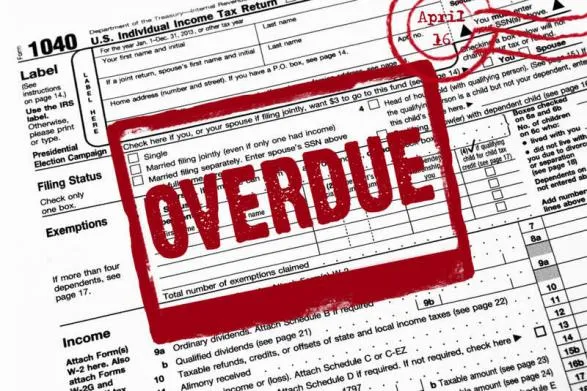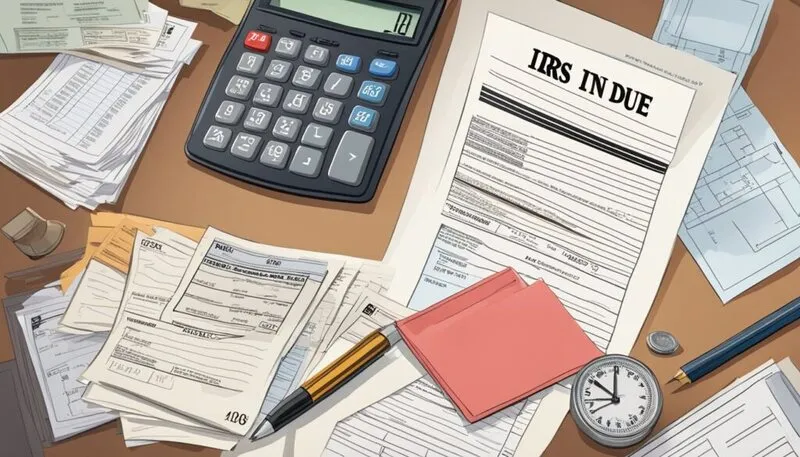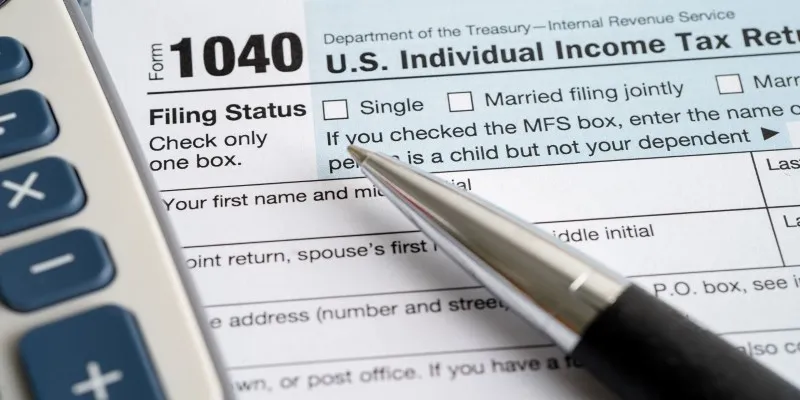Are You Hit with a Tax Penalty? How the IRS Might Give You a Second Chance This Year
Receiving a tax penalty from the IRS can be both stressful and costly. Many taxpayers might not be aware that there are scenarios where the IRS could reduce or even eliminate some penalties. This article will explore these tax penalties, explain why they occur, and discuss various relief options provided by the IRS. You’ll learn how you might qualify for a “do-over” on your penalty and the steps to request relief.
Common Reasons for IRS Tax Penalties
The IRS imposes tax penalties when taxpayers fail to meet certain obligations, such as submitting returns on time or paying owed taxes by specified deadlines. Penalties often stem from errors like incorrect reporting of income, underpayment of taxes, or missing the filing deadline. A common penalty is the failure-to-file fee, charged for late submission of a tax return. Another frequent issue is the penalty for non-payment, imposed when a taxpayer does not pay the owed amount by the due date, even if they have filed their return.

Mistakes in tax return submissions can lead to penalties. If you incorrectly report your earnings or make errors when claiming deductions and credits, you could face penalties. Some fines are a fixed percentage of the unpaid amount, while others vary based on the amount due or the severity of the error. Understanding these penalties can help taxpayers take proactive measures to avoid them in the future.
- Prevention Tip: Keeping detailed records and double-checking figures can help reduce errors.
- Penalty Impact: Fines increase over time, making it essential to address issues promptly.
What Is First-Time Penalty Abatement?
The First-Time Penalty Abatement (FTA) program, offered by the IRS, provides relief for taxpayers penalized for the first time. FTA allows these taxpayers to have penalties waived if they meet specific criteria. This opportunity primarily applies to failure-to-file, failure-to-pay, and noncompliance with deposit-related penalties. To qualify for FTA, a taxpayer must have maintained a clean compliance record for at least the past three years, which means they have filed and paid their taxes without significant issues.
Another requirement is that all necessary tax returns for the current year must be filed. Additionally, any outstanding tax debt should be fully paid or arranged in an IRS-approved payment plan. FTA is typically the easiest method to pursue penalty relief, and you can initiate this process by contacting the IRS directly or completing the required forms on their online platform.
- Qualification Reminder: Ensure you meet all eligibility criteria before applying.
- Application Method: Taxpayers can initiate the process online or by phone.
Reasonable Cause - Understanding Another Path to Relief
The IRS also offers relief from penalties for taxpayers who can demonstrate a “reasonable cause” for their filing or payment issues. Reasonable cause may include situations like medical emergencies, natural disasters, or significant financial difficulties. The IRS looks for scenarios where the taxpayer could not meet requirements due to unforeseen factors beyond their control.
If you wish to request reasonable cause relief, taxpayers typically need to submit a written explanation to the IRS, detailing what prevented timely compliance. The IRS may request evidence such as medical records or other documentation to support your claim. Each request for reasonable cause is assessed individually, considering the taxpayer’s compliance history, understanding of the issue, and whether actions were taken when possible to prevent further problems.
- Documentation Tip: Gather all relevant records to support your case before applying.
- Case Review: Each request is assessed based on unique individual circumstances.
Statutory Exception as a Relief Option
A statutory exception is another legitimate way to obtain relief for taxpayers who meet specific legal criteria. If a taxpayer can prove that the penalty resulted from an IRS error, the IRS can grant penalty relief according to guidelines set by law. For example, if the IRS provided incorrect written instructions to a taxpayer, and they followed those instructions in good faith, they might qualify for relief through a statutory exception.
To request a statutory exception, you need to provide the IRS guidelines, typically found in official IRS publications or written communications. This type of relief is generally applicable to certain penalties and is available only under specific conditions, making it crucial to understand the requirements before applying.
- Eligibility Check: Confirm that the IRS error directly impacted your penalty.
- Documentation Requirement: Proof of IRS-issued guidance is crucial for approval.
Administrative Waivers for Taxpayers with Special Circumstances
Occasionally, the IRS offers penalty relief through administrative waivers, especially when taxpayers are affected by broader issues such as changes in IRS policies or external crises. For instance, in the event of natural disasters in the United States, the IRS often issues administrative waivers for affected taxpayers, allowing them to delay filings and payments without penalties.

To determine if you qualify for an administrative waiver, it is advisable to visit the IRS website or consult a tax professional. Official announcements typically communicate these waivers, and they apply only during specific periods and conditions. While not available to everyone, these waivers can provide vital assistance during challenging times.
- Eligibility Verification: Confirm eligibility criteria on the IRS website or with a tax professional.
- Event-Specific Relief: Relief is typically for specific events, such as natural disasters.
How to Apply for IRS Penalty Relief
The process of seeking penalty relief from the IRS varies depending on the type of relief you are pursuing. For First-Time Penalty Abatement, you can either contact the IRS directly or submit Form 843, titled ‘Claim for Refund and Request for Abatement’. An IRS agent may ask a few questions to determine your eligibility before approving or denying your request.
For relief through reasonable cause or statutory exception, taxpayers usually need to provide a written account or evidence supporting their situation. IRS representatives review these documents and make decisions based on the facts presented. Taxpayers should keep copies of any correspondence with the IRS as part of their records. Seeking advice from a tax professional can also be beneficial, especially for more complex cases.
If taxpayers believe their relief request was unjustly denied, they may have the opportunity to appeal the decision. The appeals process involves submitting a formal application and, in some cases, meeting with an IRS officer to discuss the request further.
- Documentation Advice: Retain all correspondence with the IRS to support your case.
- Professional Assistance: A tax professional can provide valuable insight during complex cases.
Staying Compliant and Avoiding Future Penalties
To avoid future penalties, taxpayers should prioritize compliance with IRS regulations and deadlines. They should submit all tax returns on time, promptly pay any owed taxes, and maintain clear financial records throughout the year. Many taxpayers benefit from using tax preparation software or hiring a professional to ensure accuracy and reduce the likelihood of errors.
Another way to maintain compliance is by regularly reviewing IRS notices and publications. The IRS occasionally updates its policies, so staying informed of the latest guidelines can help taxpayers adjust their financial strategies as needed. For those struggling to pay taxes, exploring options such as installment agreements or setting up an IRS payment plan can offer financial flexibility and reduce the risk of accumulating penalties over time.
- Timely Payments: Paying on time helps prevent compounding penalties.
- IRS Updates: Regularly review IRS guidelines for any changes in compliance rules.
Conclusion
Tax penalties can be burdensome, but the IRS offers several relief options, including First-Time Penalty Abatement, reasonable cause assistance, statutory exceptions, and administrative waivers. Understanding each option and knowing how to utilize them can significantly help in reducing or eliminating penalty charges. By staying informed and proactively meeting requirements, taxpayers have a lower risk of incurring future penalties and can feel confident in managing their obligations.











